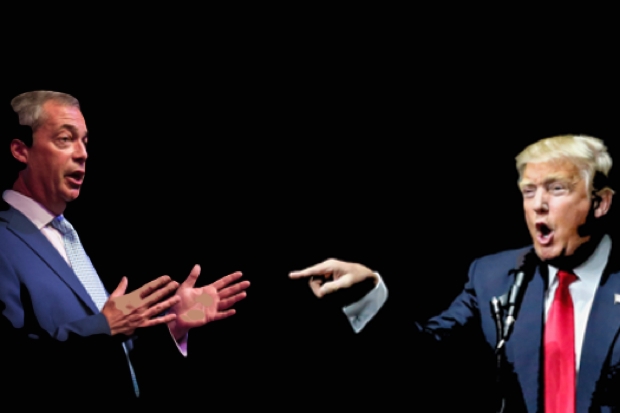The news that Donald Trump’s new campaign manager is Steve Bannon, head of the right-wing media site Breitbart, has shocked a few commentators. It shouldn’t. For almost a year now, it’s been obvious to anybody who can be bothered to look that the Trump campaign and Breitbart fit together like hand in glove, though who is the hand and who is the glove is harder to fathom.
Bitter ex-Breitbart employees now call the site ‘Trump’s Pravda’. The name seems to have been coined by Ben Shapiro, one of Breitbart’s more successful journalists, who finally had enough and resigned over what he saw as a lack of editorial integrity in the age of the Donald. He considered the site’s avidly pro-Trump line to be a betrayal of the legacy of Andrew Breitbart, the site’s founder, an apostle of Matt Drudge. The final straw, he suggested, was the case of Michelle Fields, the Breitbart reporter who claimed she had been manhandled by Trump’s then campaign manager Corey Lewandowski. She resigned because she felt her employers sided with Lewandowski rather than her.
But Breitbart employees throwing their arms up in horror at the Trumpist takeover are about as convincing as those Russia Today employees who suddenly decided, around the time of the Ukraine invasion, that their Kremlin-sponsored news channel was not a model of impartiality. Breitbart is not a news organisation in any traditional sense. It is a right-wing site with a clear political, even subversive, agenda. Or perhaps it pretends to have a subversive agenda in order to build up its brand and make masses of money out of gullible, paranoid right-wingers. Donald Trump and Breitbart have a lot in common, you see.
Moreover, Breitbart has form when it comes to taking over a right-wing populist election campaign — and wrecking it. The organisation did exactly that to Ukip in Britain last year. As Sebastian Payne and I reported, Ukip’s election strategy started go somewhat awry after the head of Breitbart UK, Raheem Kassam, started running Nigel Farage’s campaign.
Just as in the US, the trouble began with Breitbart reporters grumbling about excessive bias. ‘We effectively became the Ukip comms office,’ one former employee told me. ‘Any criticism of the sainted Farage was completely banned.’ Then Ukippers bemoaned Farage’s ‘mad love affair’ with American tea party politics. (He was assiduously courted not just by Kassam but Bannon himself, who arranged a press tour for him in America. ‘He’s certainly my sort of chap,’ recalls Farage in his memoir, The Purple Revolution.)
The Breitbart-Ukip affair turned into farce with party leader effectively being controlled by publication, and resorting to a ‘shock and awe’ media strategy, which involved making deliberately outrageous statements to arouse the pompous ire of the people-hating political and media class. Ukip still performed well overall in the election, but Farage failed to win his target seat in South Thanet, and the party started to eat itself in the days and weeks that followed the election.
In fairness, Breitbart and Trump are better suited than Breitbart and Ukip ever were. Paranoid politics has been more successful at the ballot in the US than in Britain, though we may be catching up. Ukip is a grassroots, distinctly British movement, which didn’t take well to Breitbart’s American muckraker techniques. Trump, on the other hand, is a subversive media figure who has hijacked the decrepit Republican Party. Hand in glove, as I said.







Comments